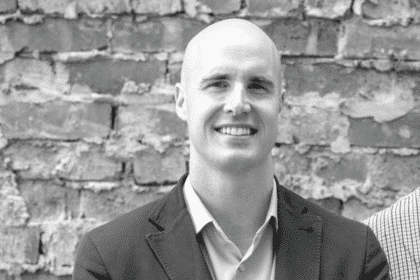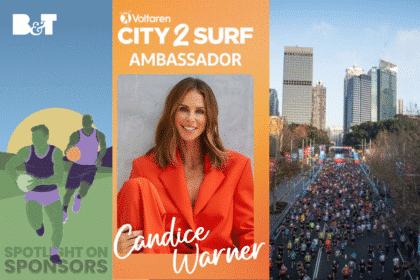In a recent chat with Kath Blackham, the founder and chief executive of Versa, I found myself stumped and watery-eyed. The cause? Her advice for a young, Kath Blackham, and the revelation of her biggest mistake.
Kath Blackham is one of the biggest names in digital experiences, heading multi-award-winning agency Versa. While a leader in this space, Blackham instead believes her life’s work has been in mental health in the workplace: as a proponent of the four-day work week, and as a potent mentor.
But, I asked her in a recent chat, what advice would she offer herself? What were her biggest mistakes? And how did she become such a well-known name in her industry?
Don’t sweat the small stuff, she told me. Don’t worry about what other people are doing.
But more than this, Blackham shared from her own lived experience what I’m sure will prove extraordinarily valuable advice for women professionals with children: Don’t choose between caring for your newborn child and your work.
As a 26-year-old man, I can’t fully relate to that: feeling that you must cut your maternity leave short for your career, as Blackham has felt. But I can listen and empathise with the women who have made that choice, and those that will continue to make it.
So, join me in hearing from one of our Women Leading Tech, but more than that, one of the Australian tech industry’s boldest leaders, Kath Blackham.
B&T: Kath, what advice would you give your younger self?
KB: A couple of things. Don’t sweat the small stuff and don’t worry about what other people are doing. When you’re younger, you ask: “what’s that person above me doing? What’s that person beside me doing?”. I wish I could just go back and say, “forget about what your boss is or isn’t doing”. I was that person.
I wish I had, much earlier on, focused in on the things that I believe in and working towards those, rather than worrying about my career and where I was going, because that has followed for me.
I mentor a lot of females approximately between 28 to 34, and the reason for that age group is that that is generally when you’re thinking of having children. What I always tell them, and this is the advice to my younger self, is that I’m 46-years-old, my career has spanned 25 years and I’ve still got almost my entire career in front of me. Everything I’ve done, I can do again, if I wanted to. And so, when you’re 30, you have more than your whole career ahead of you.
It’s all about just being comfortable being where you are. If you want to have children, go and have children. If you want to do something completely different, go and do something different, because time is in our hands.
Whereas, I feel that the younger version of myself, like the younger version of everybody, thinks “that I’ve got to be the best, I’ve got to have the best title, and the best pay, and the best everything now.”
You realise that that’s not as important.
You’re one of the biggest names in digital experiences—why is that?
Because I’ve stuck my neck out a bit. I’m most well-known for the four-day week and for the things that I’m most passionate about. My life’s work, effectively, is mental health in the workplace, diversity and inclusion, and using technology for good.
That’s the thing that gets me up in the morning, and if our company can’t do that to some level, then that’ll be the end. That’s when I’ll just close the doors and walk away.
A lot of people have ideas around ways to make the industry better, but I’m pretty proud of the fact that I went out and found a way. I truly believe that the four-day work week is all about mental health, which I think in our industry is an epidemic.
It’s a hidden disease that more people than you think suffer from, and we’ve got to do more than just pay lip service to it. There’s a lot of companies that are like, “let’s do some meditation”. That’s great, but we’ve got to de-stigmatise it so that people can start talking about it.
The four-day work week is about creating a day where people can take a breath, and do things for themselves, but also as a circuit breaker. We went from a six-day week to a five-day week as a global society 100 years ago. Since then, computers have been introduced, mobile phones have been introduced. We are so much more productive. And guess who has gained from all of that productivity? Companies, not employees. We’re still working five days a week. How stupid is that?
I’m also doing it because I want to create a conversation that maybe will start to get people thinking about well, maybe as a society, maybe as a government, we should be talking about four days a week. Who’s to say we should work five days a week?
Ironically, Microsoft did this first in Japan—one of the hardest working nations in the world.
What were your biggest mistakes, and what would you do differently?
This is probably tied-up to my advice. I had my first child when I was 32, and I went back to my job as the head of product at realestate.com.au. I was on the leadership team of a publicly-listed company—a massive job, and I felt like I’d hit what I thought was my pinnacle.
I cried on my last day of work. I was devastated. I thought my whole world was ending—because I was leaving on maternity leave. And so, I agreed that I would come back to work six months later. I agreed that I would keep managing my team right throughout my maternity leave.
So, I used to take the baby, who’s now 15 years old, into those meetings when she was four weeks old and I would breastfeed and talk to the team.
That’s my biggest regret. I’ll never get that time back with my daughter. It’s not that it would have changed the outcome of who she is by any stretch, but I shouldn’t have been so quick to come back.
As a female, it’s a really important lesson, because I really believed that that was the best thing for me to do. I remember crying, every day I left to go to work, for a month. I would leave my daughter, when she was six months old and go off to work, and I would cry on the way to work because I was devastated. And then I would do my job and it would be all good, and then I’d come back to my daughter but be so exhausted because I was trying to do everything—and you just don’t need to.
What would I do differently? I’d take 12 months off. In fact, I’d probably ask for a bit more.
What particularly blows your mind about your industry?
That’s an easy one. It’s the pace of technology. In the conversational AI space, with voice smart speakers, the ability for websites and apps to speak—whether it’s typing or actually speaking, what blows my mind is that the technology is there now.
We, as human beings, have caught up to the technology. Now we need to decide how far we are going to go with it. It was right up until five years ago that the technology wasn’t ready.
I don’t know if you remember that movie, Her (2013)—with Joaquin Phoenix, where Scarlett Johansson plays the AI—but that is a reality now. That blows my mind. We’ve got all of this at our fingertips. Now, as an industry, we just need to work out how to use it to our clients’ advantage.
The closest that we’re getting to the Her (2013) example is that there’s now translators that allow you to talk to somebody in their own language. That technology is just starting to be rolled out, not in Australia, unfortunately, but in other countries.
We’re currently redoing our website at the moment, and it will just ask people one question, ‘how can we help?’, and then whatever they write in, we’ll give them the content. It’s a whole different way of navigating.
Where the industry is going is so exciting, because we have spent so long in human-centred design—trying to build experiences for users that anticipate what they are going to want. We always put the ‘search’ in the top right-hand corner so that the user can find it. We always put the ‘contact us’ at the bottom of the page because we know that then the user will be able to find it.
Now we don’t need to worry about any of that. We just ask them to tell us in their own words. They don’t have to anticipate what we’re thinking. They just tell us what they want to see, and then we can have as much content as we want sitting behind that, and we just show them the content that they need. It’s super cool.
Entries for the 2021 Women Leading Tech awards close on Monday, 1 March. To submit your entry, click here.
The Women Leading Tech Awards will be hosted virtually on Tuesday, 20 April.
If you’d like more information on the event, head to this website.
Thank you to our incredible sponsors and supporters for making this event possible.









